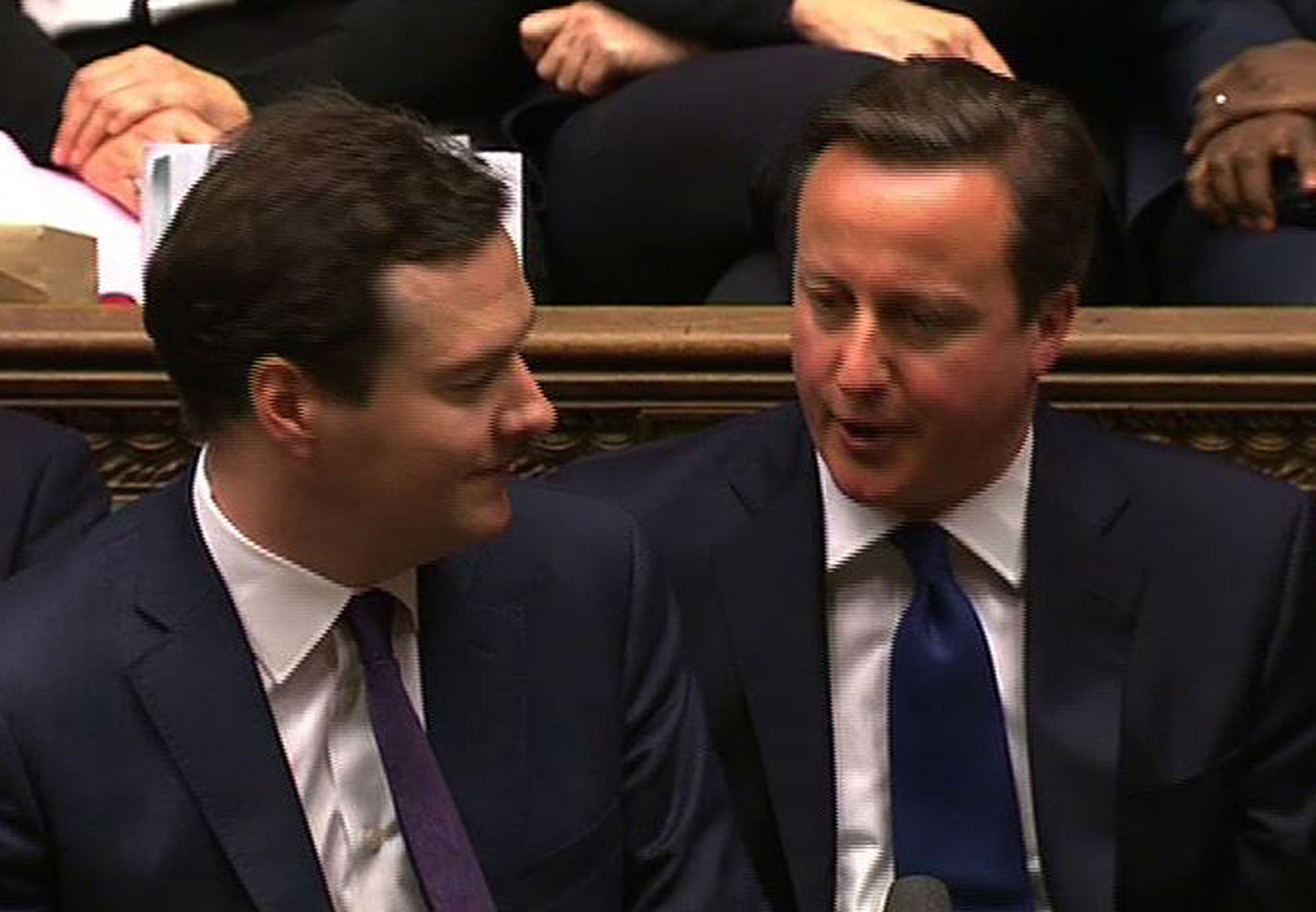Ministerial rows over cuts show how much weaker Cameron and Osborne have become
The Tories now see the reality of public-spending cuts - and they don't like it


Compare and contrast the Coalition’s current public spending review with the last one. The vivid differences tell us more about the dramatically changing dynamics of the Coalition – and the fragility of David Cameron’s leadership – than all of the recent colourful speculation about whether or not a rival plans to oust him.
Historians will conclude that the Coalition’s fate was sealed by the first public spending round, held in the immediate aftermath of the election. It was conducted in a frenzied rush by new, inexperienced ministers with the simple objective of introducing sweeping cuts irrespective of their impact on fragile economic growth. Historians will also note the remarkable ministerial discipline, unity and sense of mission in 2010. With one or two exceptions, ministers competed to find the cuts as quickly as possible. As if it were a game being played at a public school, George Osborne dangled a little prize in front of them, declaring that those who cut most speedily would be allowed to join the so-called star chamber of ministers presiding over the overall reductions. Ministers cut quickly to secure the Chancellor’s approval, and would then urge similarly speedy reductions on their colleagues.
Osborne held sway, backed by David Cameron who exerted the authority of a Prime Minister on a honeymoon and who had the support of Nick Clegg at his most co-operative or gullible. Triple tuition fees? Let’s do it. Cut a loan to a productive company in Sheffield? Let’s cut it. On they went together, and if any minister resisted, he or she was made to feel deeply uncomfortable.
When Osborne announced the outcome of the review in the autumn of 2010, he was widely hailed in the media as the star of the Government, the one who had matured most as he moved from opposition to power. During his Commons statement on the historic reductions, ministers sitting nearby on the same front bench nodded in harmony. They were all in it together.
Pulling apart
Fast-forward to the present. Instead of accepting further big cuts in his department, Vince Cable argues openly for substantial increases in capital spending and half jokes that he is regarded as the ministerial shop steward in the new public spending review. Clegg supports him on this and admits rightly that they made a significant miscalculation in cutting capital expenditure in 2010. The normally restrained and loyal Philip Hammond fights in public to protect his Defence budget and argues that there should be further reductions in welfare as an alternative. Cable openly states that he sees little scope for further reductions in the welfare budget. Others wonder aloud about the virtues of ring-fencing some departmental budgets, forcing them to find even deeper cuts.
But the ring-fenced Health budget cannot be cut. In the short term at least, Health will need increases to pay for the NHS reforms that will inevitably require more bureaucrats to mediate between all the different players in the new precarious structure that takes effect next month. Meanwhile at the Home Office, ministers are letting it be known that they are under considerable strain as they implement the current cuts. Why should they take more of the strain while others are protected?
The most explosive departmental remit is welfare. I will be surprised if Osborne secures the cuts he negotiated last time as he starts detailed negotiations about future reductions. The so-called bedroom tax, a consequence of the last spending round, has some of the characteristics of the poll tax. Cameron is almost on his own in calling the measure, comically, the “spare room subsidy”, in the same way Margaret Thatcher insisted alone in referring to the poll tax by its official title, the Community Charge. There were frenzied attempts then to agree exemptions, as there are now. At Prime Minister’s Questions yesterday, Ed Miliband pointed very precisely to the gap between the total that disabled claimants would lose and the puny budget set aside to protect them. Tales are surfacing of heroic victims of the bedroom tax, stories that alarm a few Tory MPs. Some of them are convinced that Cameron and Osborne will be forced to spend additional money in an attempt to exempt more heroic victims, until there comes a point when they might as well not have the policy at all. Meanwhile, Osborne demands another round of very big cuts in welfare as he deals with the explosive consequences of the first round.
Weaker
What do we learn from the contrast between then and now? In theory, the Coalition is united in support of sweeping cuts in public spending. But when more experienced ministers contemplate their own departments now they see little room for savings and some powerful arguments for increases in spending. Public spending can have more benevolent consequences than some ministers dared to realise in 2010. They realise it now.
Politically, the noisy negotiations show how much weaker Cameron and Osborne have become after a fleeting moment as overwhelmingly authoritative figures. Some ministers are becoming more assertive, sensing that Cameron is too weak to contemplate sacking them. They detect space for them to develop their own public voices. This does not mean they are planning a leadership bid, but we are leaving behind the era in which only the Prime Minister and Chancellor mattered and the rest danced gratefully to their tunes. Some of them compose distinct tunes of their own.

Join our commenting forum
Join thought-provoking conversations, follow other Independent readers and see their replies